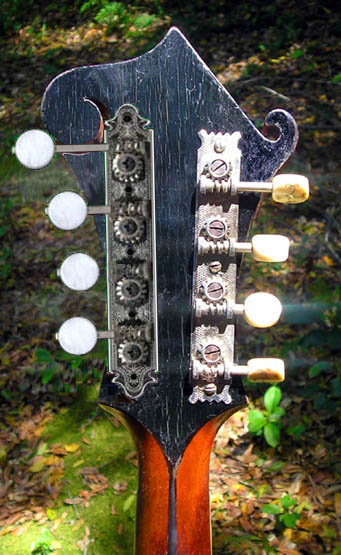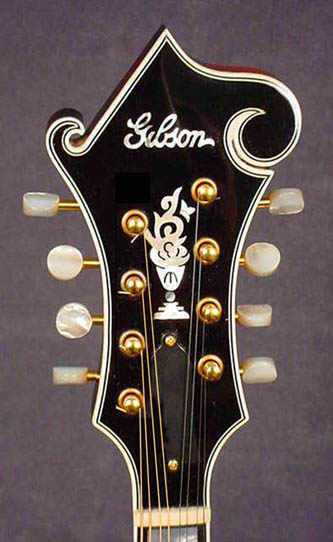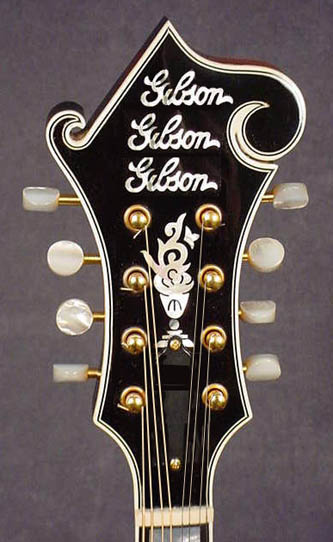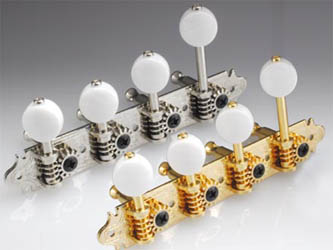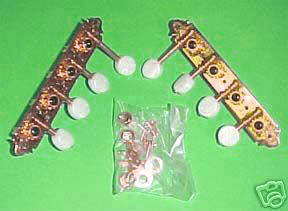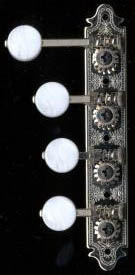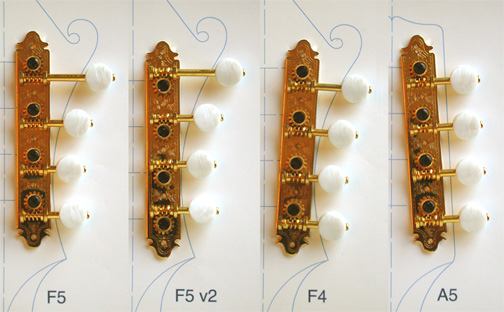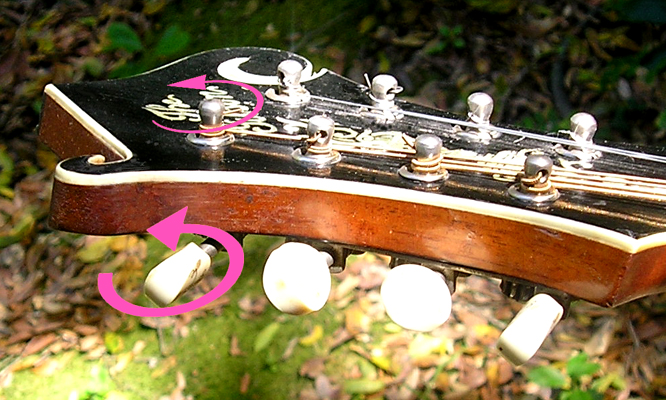| Youth wants to know... Which way are mandolin gears supposed to turn? 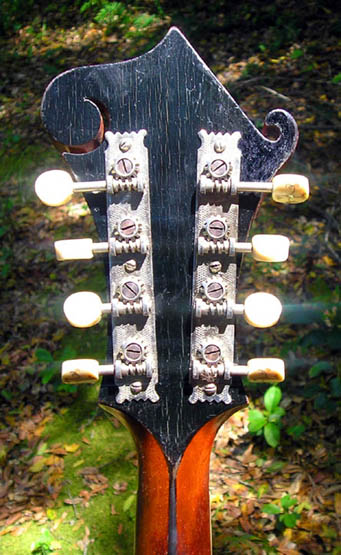
At some point someone finally realized that gears
functioned a
little better
if the worm was above the cog. Why? Gears always
have a bit of
backlash.
With the cog above the worm, that slop was pulled tight
by the string
tension.
With the cog below the worm, the string tension did not
absorb
the
slop or backlash as well, and staying in tune was more
difficult. So it is said—I think it works about the same
either way. Sometime around 1925, everyone in the industry agreed
to
change to the
other configuration, and gears started to be made that
way. For guitars
and simple mandolins, it was no big deal: just move the
post holes so
the
buttons lined up along the sides of the headstock
correctly. But on
Gibson's
F-style mandolins, it really messed with the aesthetics
of their
headstock.
The gear shafts with the worm attached had to stick out
just so, and
moving
the gear posts down the face of the headstock looked
rather odd. So
being slaves
to fashion, they didn't change them for a very long
time. And even after they
did, they changed back anyway. |
| Except some folks managed to redesign the Gibson
headstock to
work with the new "worm-over" gears. But the new-style
tuners really don't work
with
the old-style headstock's post positions. Have a look:
As you can see here, the top treble-side replacement tuner buttons hit the curlicue. If you move the whole gear plate down, the posts lie very oddly on the headstock as seen from the front, which means the posts closest to the nut have to be moved way down and the plate is sometimes projecting off the back of the headstock. The proportions of the headstock are seriously tweaked.
|
|
The bass-side tuner posts in the left image are photoshopped to where they'd be with the modern tuners. The treble side is unchanged. The image on right shows a headstock with modern ("worm over") gears. |
| Gotoh makes their F-gears both ways. Stew-Mac offers only one of them, the early style:
Gotoh makes them with the worm above and below the cog in a variety of styles. From eBay and elsewhere:
From Roger Siminoff's webpage:
Note the different shaft lengths on the above
gears. |
| Here's the issue again: |
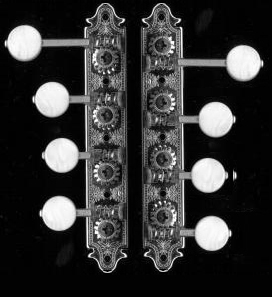 If the plates are aligned, the posts and button shaft positions are therefore different. The post location is important, and so is the shaft
location.
|
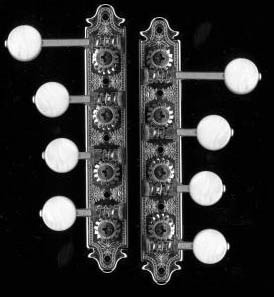 If the posts are in the same location, the plates and
button
shafts
both come out different, as in the photo of the F-5,
above. This is
also
not workable unless the headstock is fundamentally
redesigned to
accommodate
it..
|
| In any case...no matter which type of tuners you have, the buttons should turn the same direction to make the gears turn the right way, like this:
Turn that D button counterclockwise, and it should make the post turn precisely the same direction whether the worm is above or below the cog. Once again: No matter which type of gears is on the
mandolin, Let's abandon the term "reverse" with these gears.
Nothing is
reversed. With rare exceptions, you cannot take gears apart and
swap
parts to make them turn the opposite way. Some observations about a couple of Gotoh gears on the market right now |
 If you've never emailed me before, beware of my spam protocol; you have to endure it only once. |
